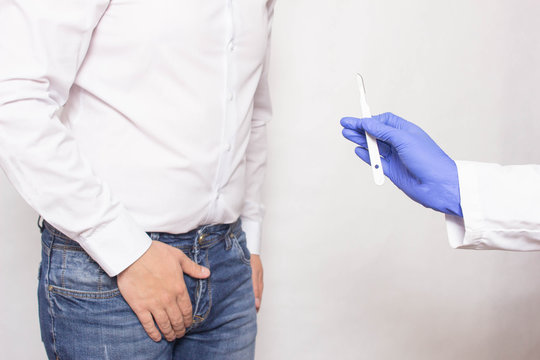
Andrology is a branch of medicine that specializes in the study and management of male reproductive and sexual health. It focuses on understanding the physiological and psychological aspects of male sexual function, as well as the diagnosis and treatment of conditions such as erectile dysfunction, male infertility, testosterone deficiency, and prostate disorders.
1. Erectile Dysfunction
Erectile dysfunction (ED) is a prevalent condition characterized by the consistent inability to achieve or maintain an erection sufficient for satisfactory sexual performance. It can have various causes, including underlying medical conditions, lifestyle factors, and psychological issues.
2. Male Infertility
Male infertility refers to the inability of a man to impregnate his partner despite regular unprotected intercourse. Factors such as low sperm count, poor sperm motility, and abnormal sperm morphology can contribute to male infertility. Andrologists play a vital role in diagnosing the underlying causes and recommending appropriate treatments.
3. Testosterone Deficiency
Testosterone deficiency, also known as hypogonadism, occurs when the testes produce insufficient levels of testosterone. This hormonal imbalance can lead to a range of symptoms, including fatigue, reduced libido, depression, and loss of muscle mass. Andrologists can diagnose testosterone deficiency and recommend hormone replacement therapy when necessary.
4. Prostate Health
Prostate health is a significant aspect of andrology. Conditions such as benign prostatic hyperplasia (BPH) and prostate cancer are common in men. Andrologists are involved in the diagnosis, treatment, and ongoing management of prostate disorders, ensuring optimal prostate health.
When it comes to diagnosing and treating andrological conditions, comprehensive evaluation and personalized approaches are crucial. Here are the key aspects of the diagnostic and treatment process:
1. Medical History and Physical Examination
Andrologists gather detailed medical histories and conduct physical examinations to understand the patient's overall health and identify any specific concerns related to the reproductive system.
2. Laboratory Tests
Laboratory tests, including blood work and semen analysis, help in assessing hormone levels, sperm quality, and other relevant parameters. These tests aid in the diagnosis of various andrological conditions.
3. Imaging Studies
Imaging studies such as ultrasound or MRI scans may be conducted to obtain detailed images of the reproductive organs, assisting in the diagnosis and evaluation of conditions like prostate abnormalities.
4. Treatment Options
Treatment options in andrology vary depending on the specific condition. They can range from lifestyle modifications, such as dietary changes and exercise, to medication, hormone replacement therapy, surgical interventions, or assisted reproductive techniques.
FAQ's
Services
- Kidney Stone
- Kidney Transplant Evalution & Surgery
- BHP
- Uro-Oncology
- Kidney Cancer
- Penis Cancer
- Bladder Cancer
- Prostate Cancer
- Testicular Cancer
- Urethral cancer
- Sexual dysfunction & Male infertility
- Erectile dysfunction and Impotence
- Andrology
- Robotic Surgery
- RIRS
- Blood in Urine
- Urinary Tract Infection
- Urinary Incontinence
- Prostate Gland
- Pediatric Urology & Laparoscopy
- Aging Male
- Female Urology
- Penis Enlargement
- Varicocele
- A-V Fistula & Ralated Vascular Access Surgery
